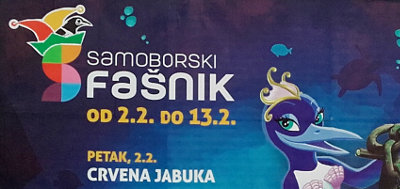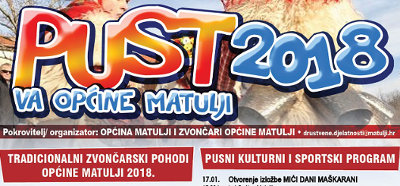| N |
| A |
| DL |
| G |
| 24 |
| I |
| V |
This chapter will give a brief overview of words and expressions used in some Croatian traditions.
There are two process-completion verb pairs for marry: one is from the female perspective, another from the male perspective:
| female: | udavati (udaje) se² ~* udati se² |
| male: | ženiti se² ~* o- («) |
You would use the first pair if the subject is a woman, and the second verb if the subject is a man.
However, if the subject is a couple, the male version is used:
Oženit će se. They will get married.
Such reciprocal use of this verb pair is very common, but some Standard Croatian manuals don’t accept it, and suggest using another, gender-neutral verb pair (which is a bit archaic, and seldom used in speech):
vjenčavati («) se² ~* vjenčati se² marry (Std; rare in speech)
It’s possible, but slightly old-fashioned to use both verb pairs without the se²: then the subjects are parents, while one who gets married is the object – again, if your daughter gets married, you would use the first verb, if your son gets married, the second one.
Note these pairs are clearly of the process-completion type, but one is derived by prefixes, others aren’t: derivation is not always clear cut.
The most important holidays in Croatia are:
|
Božić Christmas Uskrs Easter |
Nova godina New Year Svi sveti All Saints’ Day |
All except Nova godina New Year are Christian holidays. As most people in Croatia are Catholics, they are celebrated on the same dates as in most West European and North American countries ®. It’s a custom to give presents (esp. to children) for Christmas. The day before Christmas, when preparations are made, has a special name, but it’s not an official holiday (many people, if they are able to, will take a day of vacation, but others will work):
Badnjak Christmas Eve
All these days, except the All Saint’s Day, will have specially prepared meals (e.g. Badnjak will have fish). On the All Saint’s Day, many people will visit family graves (since great crowds gather at that day, many people will visit graves few days earlier or a day later).
Another holiday of some importance is:
Prvi maj (colloq.) May 1st
Observe how its name diverts from the usual grammar rules, you would rather expect Prvi (dan mjeseca) maja.
From these holidays, relational adjectives are derived by -ni or -nji, except for May 1st:
Božić Christmas → božićni
Uskrs Easter → uskrsni / uskršnji
Nova godina New Year → novogodišnji
Prvi maj (colloq.) May 1st → prvomajski
There are no relational adjectives derived from Svi sveti or Badnjak in common use.
In some regions, esp. with more religious (Catholic) people, there’s a tradition to celebrate various holidays dedicated to Virgin Mary.
As in some other countries, there’s a period in late winter, known as Carnival, when masked processions and specific rituals occur ®. It culminates on the Tuesday 41 days before Easter. There are various names in Croatia, the common ones are:
|
karneval fašnik maškare f pl. |
mesopust poklade f pl. pust |
The word fašnik is most common in Zagreb and the northwestern area; other names prevail elsewhere. For instance, this billboard advertises fašnik in Samobor, a town close to Zagreb:

(Pay attention how Samobor is transformed into the relational adjective samoborski). Meanwhile, this poster announces pust in Matulji, a small town close to Rijeka:

(The poster is in the local dialect of Matulji and generally surroundings of Rijeka; e.g. instead of u¨, the preposition is va¨, some case endings are different, etc. The term pust is also used in Slovenia.)
This custom varies in different parts of Croatia, its barely present in some parts (e.g. Slavonia), while in other parts (esp. northern part of the coast) it’s a major tradition and a great celebration.
(the rest is coming soon)
________
® In Serbia, and parts of Bosnia where there’s a majority of Serbs, religious holidays are celebrated on different dates, according to the tradition of the Serbian Orthodox Church.
In Bosnia, esp. in parts with a large Muslim population, additional holidays, usually known as Bajram are celebrated according to Muslim traditions.
Carnival traditions are uncommon in Bosnia and Serbia.
I am waiting for This lesson.
ReplyDeleteI'm grateful on your patience.
DeleteHi, I always see the word "ipak" and it seems it has so many different meanings. Do you have a good way of explaining what it means in English?
ReplyDeleteI'd say it's nevetheless and however. It simply means something doesn't follow from previously said, something is unexpected...
DeleteI'll work on this chapter.
lp
Sorry: nevertheless.
DeleteThis is the perfect lesson I need before my speaking test. ))
ReplyDeleteNice example of "zar" usage ;-) : https://www.youtube.com/watch?v=aRDw9UzUbfw
ReplyDelete